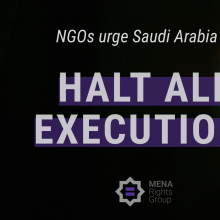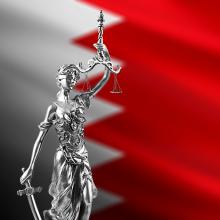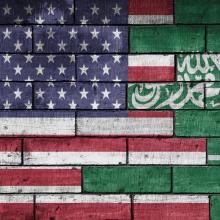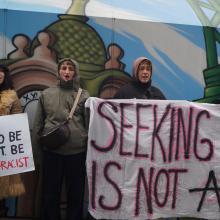October 05, 2023
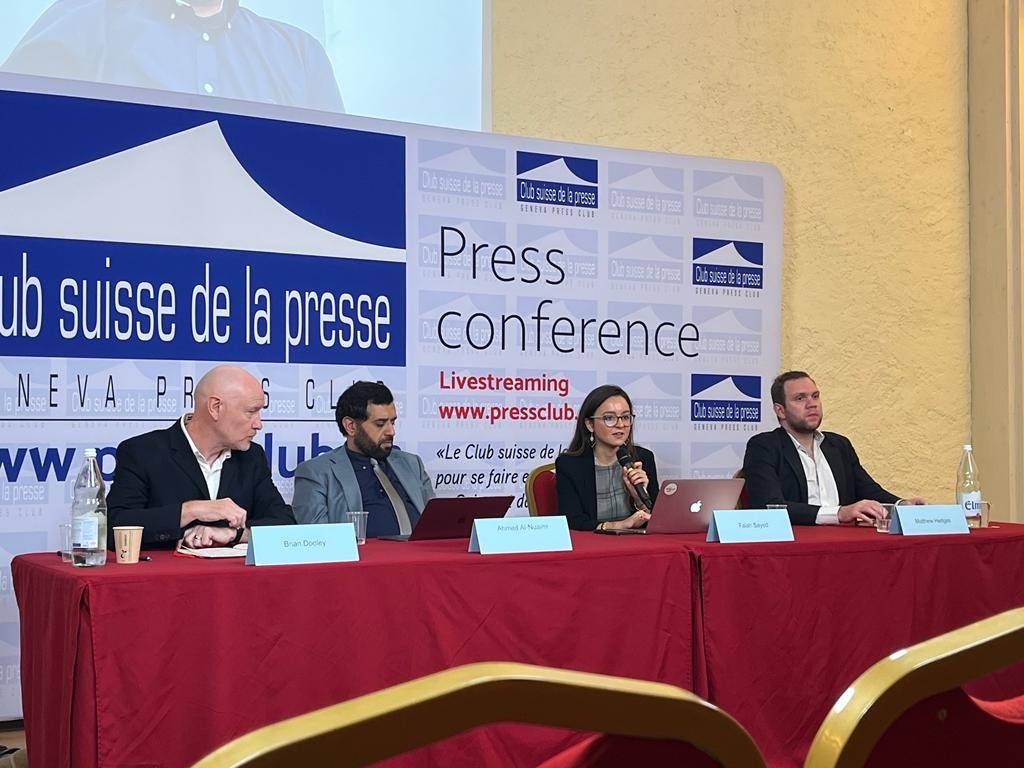
MENA Rights Group's Human Rights Officer moderates a discussion about the UAE's human rights record at the Geneva Press Club.
On May 8, 2023, the United Arab Emirates (UAE) underwent its 4th cycle of the Universal Periodic Review (UPR) before the Human Rights Council (HRC).
On October 3, 2023, during the 54th session of the HRC, the UAE informed the Council of its decision to accept 198 out of 323 recommendations it had received. The UAE accepted most recommendations related to the protection of women’s rights, migrant workers, children’s rights, gender equality, the fight against discrimination and strengthening the institutional, legislative and policy framework with regards to the protection of human rights in general.
However, most recommendations concerning the ratification of international conventions, freedom of expression and association, the protection of human rights defenders and counterterrorism were simply “noted”. The UAE’s human rights record on these issues remain highly concerning and 61 individuals remain arbitrarily detained in Emirati prisons for acts related to the exercise of their civil and political rights. Civic space is virtually non existent in the UAE and all human rights defenders and political activists have been imprisoned. Moreover, it should be noted that during the UPR, the UAE delegation denied allegations of torture.
Freedom of expression and association
Though the UAE received recommendations from over 20 countries to ratify or consider ratifying the International Covenant on Civil and Political Rights (ICCPR) which provides for, among others, the right to freedom of expression and peaceful assembly, it accepted none of them. In a similar stance, it did not accept any recommendation to review its domestic legislation and bring it line with the right to freedom of expression.
Although freedom of expression is protected under article 33 of the Emirati constitution, these rights remain severely restricted by other legislations such as the Counter-Terrorism Law, the Cybercrime law and the Penal Code. These restrictions were in fact brought up by recommendations made by multiple countries such as Finland, the Netherlands or the United States.
In fact, the current definition of terrorism allows authorities to consider any act of public criticism as an act of terrorism. Similarly, the Cybercrime Law continues to criminalise defamation and vague acts such as “insulting the ruler”, “damaging national unity” or the “reputation of the State”. Finally, the Penal Code provides for several concerning provisions such as the criminalisation of the communication of “ideas that endanger State security”, or acts of “insulting the ruler, the prestige of the State or any of its symbols and emblems”.
The authorities are therefore still able to rely on a number of very broad and vague provisions that can be interpreted arbitrarily, to prosecute any acts of free speech. The fact that the UAE has simply noted these important recommendations is quite concerning in light of its poor record on freedom of expression and peaceful assembly.
The protection of human rights defenders
The UAE accepted several recommendations to guarantee the rights of freedom of expression and peaceful assembly and ensure a safe environment for the work of human rights defenders. While the acceptance of such recommendations should we welcomed, it must be noted that to this day, civic space in the UAE remains non-existent.
There are currently 61 individuals who are held in prison for acts related to their right to freedom of expression (according to the Emirates Detainee Advocacy Center, 56 prisoners are from the UAE94 trial, 3 prisoners are related to Al-Islah movement and 2 cases are women human rights defenders Amina Al Abduli and Maryam Al Ballushi). This is notably the case of those tried in the “UAE94” mass trial who were convicted in 2013 for expressing peaceful criticism against the government and who are still being held in prison, such as Ahmed Mansoor, Nasser Bin Ghaith or Mohammed al-Roken.
In 2013, the UN Working Group on Arbitrary Detention issued Opinion No. 60/2013, in which it found that the detention of the 61 individuals convicted in the UAE94 trial was arbitrary. Despite that, it is quite concerning to see that the UAE has simply noted an important recommendation from Belgium to “unconditionally release from prison all human rights defenders, prisoners of conscience and persons imprisoned solely because of their political convictions or the exercise of their rights to freedom of expression or association”.
Several of these individuals are currently being held beyond their prison sentence on the basis of the Munasaha regime, which is provided in the Counter-Terrorism Law. In March 2023, the UN Working Group on Arbitrary Detention adopted an Opinion concerning 12 prisoners in the UAE94 case who are detained under the Munasaha regime and it recognised that their detention is arbitrary since they are held “owing to their status as human rights defenders”. The Netherlands had issued a strong recommendation to release all prisoners held under this regime, which was unfortunately only noted by Emirati authorities.
The UAE must also refrain from targeting political activists that express criticism towards the UAE policies and government, especially in the context of COP28, as mentioned by Costa Rica and simply noted by the UAE. As the UAE is preparing to host the most important international climate conference, it must ensure a safe civic space where civil society actors can hold their governments accountable for their poor policies and advocate for human rights issues in the UAE.
Importantly, Costa Rica was the only country to bring up the UAE’s use of cyber surveillance with a recommendation to cease all surveillance operations and introduce a moratorium on the use of spyware technology. However, it is extremely concerning to see that his recommendation has simply been noted even though the UAE famously used the Israeli Pegasus spyware to spy on several human rights defenders and activists.
Torture and ill-treatment
The UAE has yet to ratify the Optional Protocol to the UN Convention against Torture and Other Cruel, Inhuman or Degrading Treatment or Punishment (OPCAT). In May 2023, 11 countries had recommended the UAE to ratify this convention. None of these recommendations were accepted and the Emirati delegation completely denied allegations of torture occurring within its country. It should be recalled that this plainly contradicts the findings of the Concluding Observations of the UN Committee against Torture issued in July 2022. Confessions extracted under torture continue to be routinely used in court as the sole evidence to convict peaceful dissidents on the basis of the Counter-Terrorism law.
The only recommendations pertaining to torture and accepted by the UAE were about the establishment of a definition of torture in domestic law in accordance with the UNCAT’s definition.
Independence of the judiciary, fair trial and due process
The independence of the judiciary in the UAE has always been undermined considering the fact that judges are mostly appointed by the executive. It has also played an important role in enabling the State Security Apparatus’ abuses, such as the practices of arbitrary and secret detention, and torture. Indeed, the UAE’s State Security Apparatus has long been a tool of repression against peaceful dissenting voices, including human rights defenders who were part of the UAE94.
In that regard, New Zealand recommended to ensure that international and legal standards for fair trials are respected in the UAE, that procedural guarantees are implemented and that evidence obtained under torture be rejected. It had also recommended that New Zealand ensure the independence of the judiciary from the executive branch. As both recommendations have been accepted, we call on Emirati authorities to implement them as a matter of priority, namely by releasing prisoners who have been convicted on the basis of torture-tainted confessions.


